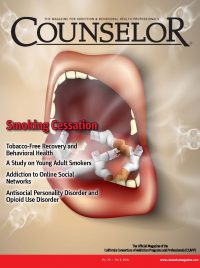Share

I recently read an article concerning a dialogue between Buddhist teacher Sharon Salzberg and Rosanne Cash (Johnny Cash’s daughter) that I am sure will profoundly change my life. In this dialogue, Salzberg makes an important distinction between remorse and guilt. In her words, “In Buddhist psychology, there’s a difference between remorse and guilt. Remorse is the genuine pain of seeing that you blew it or could have done better, and you want to move on with determination to see more clearly. Whereas guilt is not having the ability to move on, it’s being stuck . . . it’s being frozen in time” (Salzberg, 2020). She goes on to state that lingering guilt is an old habit that does not serve us, whereas remorse entails seeing what we can do to make amends and/or learning a valuable lesson and moving in a more positive direction (Salzberg, 2020).
What a powerful distinction! In my own experience, when I mess up my initial response tends to be denial, followed by guilt. Then, if I have the foresight, I apply the wisdom conveyed by Step Nine and proceed to make amends and/or make a conscious effort to learn from my mistake (AA World Services, 1953/2012). In other words, again when I have the foresight, I draw upon the quality of remorse to directly make amends to whomever I have harmed, with an eye toward making appropriate course corrections to avoid repeating that mistake in the future.
In an inspiring article titled “Step Nine in AA is of Making Amends,” author Buddy T. expounds on the critical interplay between Step Eight (i.e., “Made a list of all persons we had harmed, and became willing to make amends to them all”) and Step Nine (i.e., “Make direct amends to such people whenever possible, except when to do so would injure them or others”; Buddy T., 2019; AA World Services, 1953/2012). A visitor to the VeryWellMind.com website states, “An amend is not an apology. It is a clear and purposeful act designed to clear up a problem from the past” (Buddy T., 2019).
Positive Applications of Remorse
For sake of illustration, I will expound on two examples from my own experience.
The first entails my making amends to my former wife years following our divorce. In my first marriage, I was leaning toward agnosticism at the time I ended up becoming engaged to a devout Catholic young woman. During our engagement, I encountered a major hurdle when I learned the church required that the non-Catholic spouse sign a statement agreeing that all offspring would be raised as Catholics. Unwilling to confront and overtly respond to the dilemma I was faced with, I rationalized and told myself, “Hey, I’ll go along with their game and sign the paper, even though I have no intention of following through with that professed commitment.” As the wedding date approached I found myself succumbing to severe depression, which greatly intensified following our taking vows and consummating our marriage.
My despair over my realization that I had married this woman under false pretenses, as I perceived that I had grievously lied to both myself and my bride-to-be, as well as to the church, drove me into an intensive course of therapy that lasted several years. We ended up divorcing, and I experienced extreme remorse concerning my belief that she would never again be able to marry within the church. I wrote the Diocese of Chicago, where we were married, concerning this predicament and was relieved when I received a reply stating that from what I told them it should be very possible for the marriage to be annulled. I then passed that information on to my former wife.
. . . I draw upon the quality of remorse to directly make amends to whomever I have harmed, with an eye toward making appropriate course corrections to avoid repeating that mistake in the future.
Years later I called my former spouse, who had remarried several years previously, and profusely apologized for blocking her from having children on account of my extreme guilt over signing the paper stating that our offspring would be raised in the Catholic Church. I finally made my amends as best as I could and felt a tremendous sense of relief.
Very recently I experienced another situation that drove home the full importance of distinguishing between guilt and remorse, and directing my energy full force behind taking the latter course. I was in our garage attempting to retrieve a large mailing envelope from a very crowded shelf near the bottom of our storage cabinet. Significantly, this oversized shelf was precariously supported by four very tiny brackets. As luck would have it, my efforts to retrieve and remove the envelope from its box caused the shelf to collapse, spilling its entire contents onto the garage floor. At that point my amygdala, the part of our brain that triggers a very violent response, kicked in and completely hijacked my ability to respond to the situation in a rational manner. For the next several minutes I was cursing a blue streak of expletives that would make a drunken sailor blush! Needless to say my wife was rather distraught concerning my outburst.
After I finally calmed myself down through a combination of mindful breathing and embarrassed prayer, I was able to more rationally approach the situation and figure out a way to guide the shelf back onto its precarious balance on the four tiny brackets. Needless to say, I was overwhelmed by embarrassment and totally wiped out for at least the next half hour.
Later that day, recalling Sharon Salzberg’s advice in the aforementioned article, I was determined to apply my appropriate remorse to develop an internal strategy to either avoid, or at least substantially deescalate, any and all future untoward outbursts of this nature. Over the years I have developed a stack of affirmation cards to help me keep my act together, and I read several of these cards each morning. In the interest of learning to cope with future situations of this nature in a more rational and civilized manner, I added the following card to my deck:
- “Grounding Myself in Rationally Responding When the ‘Brown Stuff’ Hits The Fan”:
- Immediate response: “Oh s**t, whoa!”
- Grounding response: Immediately shift my focus to deep, relaxing breathing for one full minute to calm myself down. Take a short walk if needed, and then readdress the problem at hand in a rational, problem-solving mode.
Will this work in my case? Stay tuned for the next episode!
In addition to the mental-emotional repercussions accompanying a blatantly abusive outburst of this nature, such untoward behavior can also trigger damaging physiological ramifications to the detriment of our overall health status. While I misplaced the source a long time ago, I have taped to my wall an excerpt from an article that reads “An intense anger outburst dramatically increases one’s chances of having a heart attack within the next two hours.” When I read that quote shortly following my aforementioned outburst, it hit me like a ton of bricks! While I am a health nut who is totally into a semi-vegetarian diet, exercise, meditation, mindful breathing, and other trappings accompanying a wellness-oriented lifestyle, I am also aware that I am no spring chicken, as I have been walking the planet for close to eight decades. Accordingly, it really behooves me to take the following to heart: “a word to the wise is sufficient.”
Over the years I have developed a stack of affirmation cards to help me keep my act together, and I read several of these cards each morning.
As you can see, learning and applying the distinction between remorse and guilt offers dramatic potential to enhance the overall quality of our lives. That applies particularly to those of us in recovery. For sake of illustration, I have shared two (rather embarrassing) examples based on my own experience. If you are like me, within the next twenty-four hours you will do or say something that will trigger a twinge of guilt. Please be mindful, take a few moments to listen to the guilt, and then stop beating yourself up and apply the quality of remorse to recognize why and how you blew it. Then focus your attention on moving with determination to learn from this situation, make amends as needed, and hopefully come up with a strategy for behaving more rationally the next time you encounter a similar situation. Until next time—to your health!
References
- Alcoholics Anonymous World Services (AA World Services). (1953/2012). Twelve steps and twelve traditions. New York, NY: Author.
- Salzberg, S. (2020). Loving your inner critic. Lion’s Roar. Retrieved from https://www.lionsroar.com/loving-your-inner-critic/
- T., B. (2019). Step nine in AA is of making amends. Retrieved from https://www.verywellmind.com/a-study-of-step-9-69407
About Me
John Newport, PhD, is an addiction specialist, writer, and speaker living in Tucson, Arizona. He is the author of The Wellness-Recovery Connection: Charting Your Pathway to Optimal Health While Recovering from Alcoholism and Drug Addiction (2004). He is available for workshops, conference presentations, and staff trainings on all aspects of wellness and recovery, as well as for personal wellness and recovery coaching by phone. He can be reached at healingtucson@hotmail.com.













 Counselor Magazine is the official publication of the California Association of Addiction Programs and Professionals (CCAPP). Counselor offers online continuing education, article archives, subscription deals, and article submission guidelines. It has been serving the addiction field for more than thirty years.
Counselor Magazine is the official publication of the California Association of Addiction Programs and Professionals (CCAPP). Counselor offers online continuing education, article archives, subscription deals, and article submission guidelines. It has been serving the addiction field for more than thirty years.